- Alternative Artist
- Contemporary Artist
- Hip-Hop Artist
- Jazz Artist
- Rock Artist
- Featured Artist
- Afrobeat Artist
- House Artist
- Country Artist
- Dancehall Artist
- Latin Artist
- Folk Artist
- Gospel Artist
- Bhangra Artist
- Reggae Artist
- Classical Artist
- Other Artist
- Afrobeat Music
- Alternative Music
- Country Music
- Dancehall Music
- Gospel Music
- Hip-Hop Music
- Instrumental Beat Music
- Latin Music
- Other Music
- Featured Music
- Classical Music
- Contemporary Music
- Bhangra Music
- House Music
- Reggae Music
- Afrobeat Video
- Alternative Video
- Dancehall Video
- Electronic Video
- Gospel Video
- Hip-Hop Video
- Reggae Video
- Featured Videos
- Classical Video
- House Video
- Contemporary Video
- Latin Video
- Bhangra Video
- Country Video
- Other Video
- Afrobeat Music Review
- Album Of The Month
- Alternative Music Review
- Classical Music Review
- Contemporary Music Review
- Country Music Review
- Electro Music Review
- Featured Reviews
- Folk Music Review
- Gospel Music Review
- Hip Hop Music Review
- House Music Review
- Jazz Music Review
- K-Pop Music Review
- Pop Music Review
- Rap Music Review
- Reggae Music Review
- RnB Music Review
- Rock Music Review
- Trap Music Review
- Music Review Submission
- Submit Music Video For Promotion
- Submit Music For Promotion
- Sponsored Submission
- Artist Submission
- Submit Musician Interview
- Music Marketing Strategy
- How to Write Music Review:
- How To Write Album Review
- Write An Effective Musician Bio
- TikTok For Musicians
- Music Review Blogs
- Best Music Review Sites
- AI Singing Voice Generators
- Spotify Playlist Promotion Services
- Best AI Tools For Social Media
- Spotify Royalties Calculator
- Musician Name Generator

Frenchie Moe – Soul Full Tonight (Album Review)
Benedict taylor – in response to (album review), ryota matsumoto biography, derrick sena – daydreaming in kodachrome suite (album review), immerse yourself in the rock music scene of london at “amplified”, nino yayo – soul ties, the armed – perfect saviours album review (aotm august), lifesize teddy – lifesize teddy (ep review), legion x – american psycho music video [review], yeboyah – 10x ft. slani (official music video), keldamuzik ft. kafani & mika – mind sex (official video), mercy chinwo – confidence (official video), uncle waffles & royal musiq – wadibusa ft. dhp sage, pcee, and djy biza (single review), dr lekta – flowers for the illest (album review), andré 3000 – new blue sun (album review), boynextdoor – how (mini album review), 7 top concert promoters every independent artist needs.

As a solo artist without an established label or manager backing, you’ll have to work harder than most if your goal is a success.
Your first step should be finding reputable concert promotion firms who can help spread the word about upcoming shows and sell out as many tickets for them before they go on sale!
Your best concert promoter will depend on your needs and what type of show it is.
Here in this article, we have mentioned some top concert promoters that every independent artist should know to get a huge hit of success in their career.
Let’s get started!
1 – Live Nation
2 – aeg live, 3 – another planet, 4 – frank productions, 5 – c3 presents, 6 – goldenvoice, 7- the bowery presents, final words.
Imagine you are an independent musician and have just gotten your hands on some big concert promoters.
The company that will be playing at one of the largest venues in America soon is Live Nation !
You couldn’t ask for better timing as they’ve been booming this past year with over 28 million attendees coming through their doors.
They’ve grossed over $2 million through 2,700 shows annually, which is quite impressive!
The next company on our list is AEG Live .
They’ve been able to promote concerts and events with success , though they may not be as popular or well-known as other companies like Live Nation.
They generated over $1 million for just 2,7491 shows from a tiny fraction of the population- those who attended these performances!
Additionally, they’ve had 10+ Million people attend one event alone, which is an incredible feat considering how big this country is.
Another Planet’s ability to compete against larger brands like Live Nation and AEG Live sets them apart in the industry. Despite being an independent company, they have managed to secure lucrative deals with local venues, showcasing their dedication to promoting independent concert events and offering an alternative option for artists and audiences.
Through these connections, Another Planet can provide opportunities for independent artists to perform in lucrative concert events, thereby helping them gain exposure and further their careers.

This company is one of America’s more innovative and successful concert promotion firms.
They work with other smaller, independent firms to provide an array of services, including tour management for musicians ranging from solo artists up to large bands like Coldplay!
This small business has made waves throughout Hollywood by keeping beat on trends while staying ahead at all times; it’s no wonder why so many famous faces trust them as their go-to agency when things get busy around here (I mean professionally).
C3 Presents is an innovative music festival promotional company specializing in niche markets like Lolla.
They found success when they revived the popular Lollapalooza Festival, which has been acquired by larger concert promoter Live Nation for $125 million!
When C3 Presents Promotions was looking for a way to make the most money, they found that specializing in music festivals would be beneficial.
Most notably and specifically through their work with Lollapalooza, which had been acquired by larger concert producer Live Nation earlier this year after being on strike for over two years due to low ratings from fans about what kinds of concerts should take place at Chicago’s Grant Park where it is held every August near Lake Michigan.
Goldenvoice is a concert promotion company based in Los Angeles, California, known for promoting events such as the Coachella Valley Music and Arts Festival and FYF Fest. They have a reputation for creating immersive and memorable concert experiences and for their strong relationships with artists and venues.
Goldenvoice is also known for its commitment to sustainability and for its efforts to reduce the environmental impact of its events.
The Bowery Presents is a concert promotion company based in New York City, known for promoting events such as the Governors Ball Music Festival and the Mercury Lounge. They have a strong reputation for booking up-and-coming artists and for creating unique and intimate concert experiences.
The Bowery Presents is also known for its strong partnerships with venues and brands.
Concert promotions play a crucial role in the success of musicians by bringing attention to their music and helping them reach a wider audience, ultimately leading to increased popularity and a larger fan base.
The main purpose of concert promotions is to attract attention and generate interest in musicians’ music, ultimately leading to a larger fan base.
Concert promoters help musicians by bringing attention to musicians’ music that they may not be able to get on their own, thus helping them find a larger fan base.
Concert promotions are important for musicians as they help in finding a larger fan base for their music.
The role of a concert promoter is to act as a marketing team for musicians, bringing attention to their music that they may not be able to generate on their own.
Concert promotion is not an easy task.
But if you’re looking to break into this industry, some steps might help get your name out and attract more attention from larger concert promotions companies like those we’ve listed here!
What would you say if I told you that finding an audience for your music is as easy and straightforward?
Well, it doesn’t matter where they are because all we need to do now is promote our upcoming show by word-of-mouth.
We just have one more thing up our sleeves – promoting through concerts!
Concert Promotions will help us get noticed in a big way, so please continue reading below about how this works… Also, Check;
How To Promote A Concert: Get Fans To Your Music Show On Budget
12 Ways To Promote A Music Video And Get Results
Top 5 Rate Your Music Alternatives For Great Results
RELATED ARTICLES MORE FROM AUTHOR
3 best ai singing voice generators for musicians and producers, tetza releases pop break-up anthem “kick rocks” alongside cheeky music video, how to find the best music review sites you can trust, 7 best ai rap lyrics generators to up your rap game, how much do singers make per concert key factors you must know, latest post.
- Editors Choice
- Music Gear Review
Kev Cooper – Cigars
Joe lington – i gotta be with you feat bryan g..., noname – sundial (album review), ron pandy – william ellsworth “dummy” hoy (single review), hooyoosay – silently crying [ep review], ready to take your music to the next level 🎵.
Receive professional insights, constructive feedback, and personalized recommendations from our expert reviewer/critic. Don't just release music, release greatness. 🚀
Wong Diane – Now Only Me (Single Review)
Meelodi: chahár (album review), amelie lucille: mess (single review), koosje: let me drown you (song review), paradise – greg nicholson, slim prince – 1 billion (official music video).

All copyrights reserved © 2023
Get started with events
Download our FREE one-page guide on how to plan events. Get started NOW!
What Does A Concert Promoter Do And How To Get Started
Last Updated on January 24, 2023 by Mark Norman
Being a concert promoter isn’t necessarily for the faint-hearted. You have to have a passion for the music you want to promote and a good work ethic to succeed in this highly competitive industry.
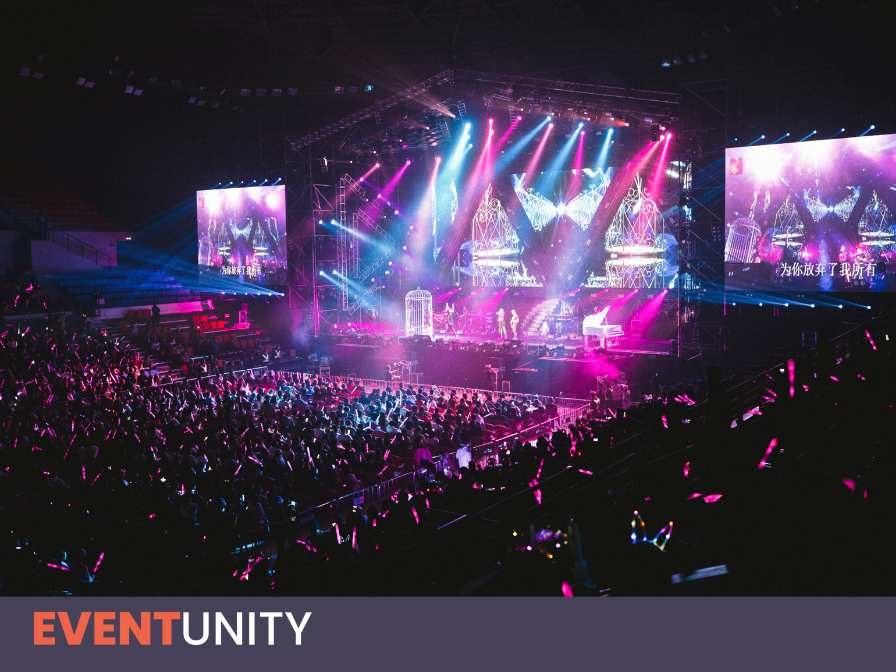
I was a successful concert promoter for over ten years, promoting a variety of live music and club night events, and I’m going to share with you some of the skills I picked up along the way.
A concert promoter is responsible for “putting on the show”, that is to say they perform the following functions:
- Booking venues
- Negotiating with agents
- Booking the bands,
- Arranging ticket sales
- Advertising the show
- Arranging all of the technical requirements
- Setting sound check and performance times
Most concert promoters aren’t tied to a venue, but sometimes they can be.
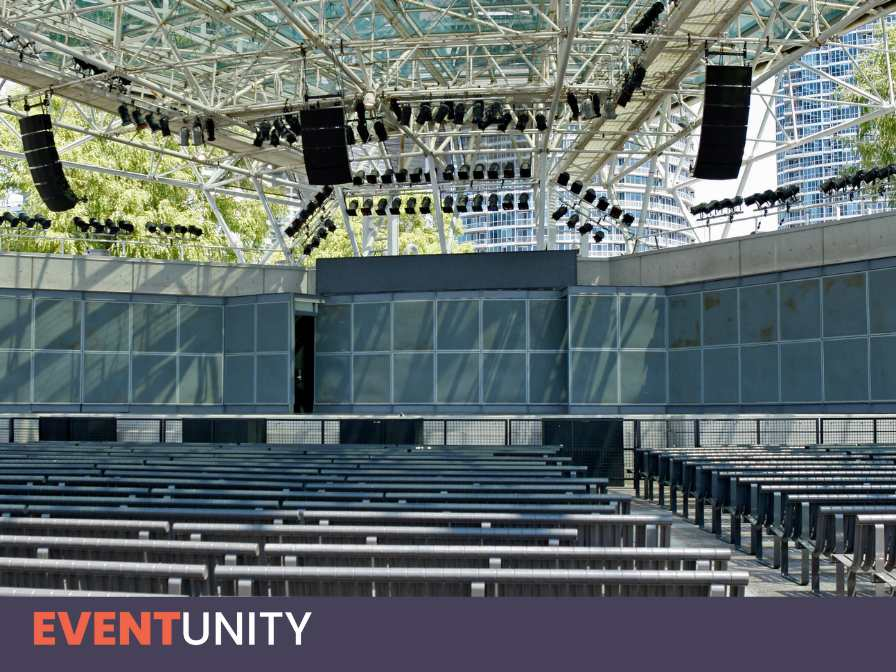
Concert promoters book or hire venues where they want to promote shows. If they already work at a venue, the roles are still very similar.
I was a venue manager for over 10 years (I didn’t own the venue), and promoted countless live shows, club nights and other performances. No two shows are the same, and concert promoter jobs can be hard work.
It’s often sold as a glamorous role, but the reality is a concert promoter will spend hours sitting at a computer or on the phone arranging a multitude of different things such as venue operations or press releases.
BUT….it’s worth it all when the show has sold out, you’ve made your money, and you can see people having a good time. That’s the passion that drives a concert promoter.
So let’s delve into that role a little deep to see exactly what a concert promoter actually does.
What does a concert promoter do?
A concert promoter may be an employee of a venue, own the venue , work for a concert promotion company or be a freelancer who uses different venues. Some concert promoters start just by hiring small venues and promoting local bands before moving up to buy their own venues.
Concert promoters work with venues of all sizes, from small events doing open mic nights to 10,000+ capacity arena shows or major outdoor festivals for companies like Live Nation .
There are plenty of similarities across these different levels, so let’s dive into this in more detail to understand what some of the concert promoter jobs are.
Working with agents
The one thing you need to realise about booking agents is that they work for the band, not the concert promoter. They usually get a % commission from the booking fee you pay.

When bands are looking to build a fan base, their agent will try to ‘route’ a series of gigs in succession. This might form the basis of a larger tour.
A concert promoter needs to understand where any particular band is in their journey. Are they playing 100, 300, 1,000 or 10,000 capacity shows? Correctly identifying this will save you from wasting the agent’s time.
Negotiating with agents is a tricky business. Be careful of just asking what the price is, the answer you get will be determined by a number of factors: how well the agent knows you if you have booked previous shows, the potential to ‘route’ a band tour your way and the popularity of the band. There may still be some wiggle room in that price if you have some good haggling skills.
Negotiation doesn’t just end with the price. A concert promoter must also sign off on the band’s rider requirements.
After all of this has been agreed, a contract is signed. Once you pass this point, there is a legal commitment to delivering everything agreed, so make sure you are happy and can deliver it or there will be trouble ahead. The agent may have a representative on-site at the gig to ensure everything goes off as agreed.
Working with bands to get them to play.
If you’re aiming to just host local bands with a small capacity venue then you may find that you need to deal with the band directly or (if they have one) a local manager. It’s not uncommon for that manager to be a parent or a close family friend, in my experience!
In this situation, negotiation can be much more informal. However, everything should still be agreed upon in advance and a simple contract or agreement signed to avoid any unnecessary confusion or issues on the day.
Arranging the tickets
Once the venue and bands are confirmed, then, the tickets need to be put on sale. Concert promotion is all about selling tickets, well for the most part. Ensuring the number of tickets sold covers the cost of putting the event on is crucial.
If the concert promoter knows there will be demand for the tickets, they may want to spend some time building up the sale date, using it to their advantage to build things like their email list in exchange for priority access.
If tickets are likely to be in demand, then a robust and trusted online ticketing platform needs to be used. When deciding on which ticketing system to use for a live show, consider the following factors:
- The price of the tickets
- % service charge by the ticketing platform
- % charge by payment fees
- The delivery method of the ticketing platform
Ideally, a system that has the lowest charges, is robust and automates ticket delivery is going to be the best option. Do some research to find out those that best suit your needs, you can find some of the best ticketing platforms on our resources page.
Advertise the show
Advertising a show is probably the most important job that a promoter does. A lot will depend on the size of the show, the location and the resources available.
One key thing to know about advertising it’s that if you’ve thought you’ve done enough, you probably haven’t ! Many people underestimate the amount of work and time needed to promote a show correctly.
Another word on agents here is that they will often want to sign off on the artwork to ensure correct logos and agreed positioning (headliner/support act, etc.).
For large shows (10,000+), the lead time for promotion and advertising could be up to or over 12 months.
Clearly, in today’s world, marketing events online is the key place. However, there is a big difference between being a prolific USER of social media and being a COMPETENT promoter on it.

Concert promoters must be very good at understanding how to use social media for business. Here is another post on how early you should start to promote an event on social media .
It’s really important first to understand who your target audience is, then serve them relevant and timely advertising and promotion in places they will see it. That goes for both online and offline advertising.
If there were three general areas to focus on, they would be:
- Listing on the venue website and included in the venue email drop
- Building your own email list (if not the venue owner)
- Build hype on your social media channels.
Arranging the riders
There are two types of riders that most concert promoters will be concerned with, the technical rider and the entertainment rider. Both should have been agreed upon in advance with a band’s agent or other representative.
Mostly the technical rider should be fine; a concert promoter should have a good sound engineer to hand. Many of the technical staff in the industry work as freelancers, so it pays to maintain a good relationship with a handful of the crew, so they always have people to call on.
Most of the fun comes from agreeing to the entertainment rider requirements that will include food and drink for the band and their crew, alcohol requirements, number of dressing rooms and much more. A good concert promoter should not be afraid to push back on the agent if they think anything is unreasonable.
Again, with both of these, failure to provide the detail agreed upon will result in major headaches for the concert promoter on the day. The key is being organised in advance to ensure everything is taken care of.
Set soundcheck and performance times
The concert promoter will need to specify the set time in accordance with the venue’s curfew times. This varies depending on their license and, in particular, if the venue is outdoors (likely to be earlier).
Concert promoters will also set things like the band ‘get in’ time, sound check times, opening times and running order. There may be a requirement on finishing times due to licensing or noise restrictions.
What skills do you need to be a concert promoter
Being a concert promoter is a tough job, but potentially hugely rewarding. . But those opportunities are often few and far between, so what other skills are important?
A concert promoter needs the following skills: negotiation, organisation, excellent personal communication, financial management and marketing .
How to become a concert promoter
You can search for concert promoter jobs online, (set up a job alert on major job websites), but in my experience you should seek work experience with a local venue or concert promoter, offer to help, have a flexible schedule and be open to learning new skills.
You do not need a bachelor’s degree to be a concert promoter, most of the skills you need you can learn through experience.
As you gain more experience you may want to try promoting your own events. Start small and then grow from there.
Do promoters make a lot of money?
Discovering the next big thing and booking them just as their profile is taking off can help to really earn a concert promoter good money.

What Is A Concert Promoter And How Do I Become One?

Concert promoters do not have easy jobs. They are cat wranglers in the middle of a three-ring circus. Connecting exciting artists to hot venues to create a fantastic event sounds awfully glamorous and exciting. It is. But it’s also a ton of work for concert promoters who have hundreds of tasks to get done, thousands of details to attend to, and a lot of egos to manage.
The concert promoter is responsible for every detail from connecting the right act to the right venue and negotiating a financially-viable event contract, to managing transportation, to getting tickets sold, to making sure the stage and equipment is properly set up. Being a concert promoter is not a role for those who can’t focus on the details.
Through all the project management and marketing activities, it’s also the concert promoter’s responsibility to put together a budget and stick to it. This is where contract negotiations become so important, especially since some artists can ask for some pretty crazy stuff. As the concert promoter, you want a buzz-worthy event where everyone has an amazing time. But it’s also your job to make sure everyone (including you) has made money on the event. With all the details and minutiae of planning, promoting and executing a concert – it’s easy to bleed money if you’re not on top of what’s being spent on what. So add business management to the concert promoter’s duties.
At the center of it all it is making sure the artist(s) are taken care of. This doesn’t just mean stocking the green room with a musician’s favorite bottled water. It means making sure the venue is ready to provide the right environment for their type of performance. It means promoting and marketing the event to the right people so there’s a full house with an enthusiastic crowd. Never forget your own days performing before a live audience, whether it was a school recital or local night club. Performing live is an exciting, nerve-wracking proposition for even the most experienced and professional musicians. Take care of the talent.
The Three R's: Readin’ Writin’ and ‘Rithmatic
To succeed at concert promotion, you need to master the education basics.
Reading : Concert promoters need to read a lot. Read about the music industry, marketing, and business. Reading (on whatever topic) is also a necessary skill to mastering the next skill.
Writing : Concert promoters have to do a lot of writing. Copywriting promotional materials, from press releases to media kits to social media content, is a huge part of the job. While going to college isn’t necessary to start down the concert promoter track, taking some writing and communications courses is definitely recommended. If you can’t use your writing to persuade people to attend events, you can’t promote.
Arithmetic : Those budgets aren’t going to resolve themselves. During contract negotiations, contract promoters need to run numbers, under costs, and whether there’s sufficient profit forecast based on the terms being discussed. You don’t need to do the math in your head. Any good spreadsheet application can do the math for you. You just need to get proficient in using them to run numbers and budgets, and let the application do the heavy lifting.
A few more valuable, practical skills:
- Learn about graphic design and how to use a program like Photoshop. When you’re starting out, you won’t just be writing promotional materials, you’ll probably doing the graphics as well.
- Get some technical experience in the process of setting up and striking events, instruments, DJ booths, anything related to a concert staging.
Getting started
Like so many music-related professions, there’s no college degree or bright line career path to getting there. Because so much of the job has to be learned on the job, getting practical experience in any skill or task demanded by a concert promoter is valuable.
Getting an internship with a concert promoter, talent manager, venue or booking manager is one way to start. Of course, being an attractive candidate as an intern will require having some degree of experience already. Since promotional writing is such a big part of the job, start finding blogs and sites where you can publish some writing to hone your skills and build a portfolio. Develop your own social media presence as someone in the know of great music events.
Network with fellow students or peers who are musicians or performers so you can start your learning process and gaining practical experience with people who can’t afford to pay professional concert promoters.
If you want to make sure you’re positioning yourself well to get an internship or entry level position with a concert promotion company, check out these common concert promoter interview questions . They’ll give you a good idea of what these companies are looking for in candidates.
Manage your expectations
Everyone with an Instagram account and an interest in billing themselves as a “concert promoter” is out there hustling. If you’re genuinely interested in being a successful concert promoter, being willing to show some patience. That means starting at the bottom with small events and venues. It also means finding ways to earn money in addition to any concert promoting work. Ideally, your other work is helping you develop the same kinds of skills and contacts that will be useful in concert promoting.
Listen to this interview with concert promoter-extraordinaire Graham Williams to get his perspective.
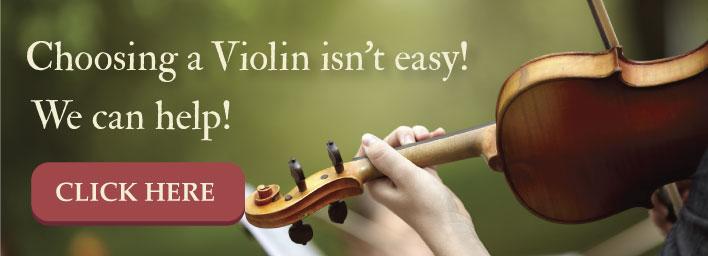
Share this article

Search StringOvation
Connolly music.
- Resource Center
- Shop our brands
StringOvation
- Latest articles
- Submit a guest post
Subscribe to StringOvation
Connolly family of brands.
- Thomastik-Infeld
- konig & meyer
- Magic Rosin
- THE REALIST
- Connolly Music Company
- 8 Vernon Valley Road, E. Northport, NY 11731
- 800.644.5268
- [email protected]
- M-F 9 am - 5 pm ET
- Copyright 2020 by Connolly Music Company. All rights Reserved
- Privacy Policy
- Terms & Conditions
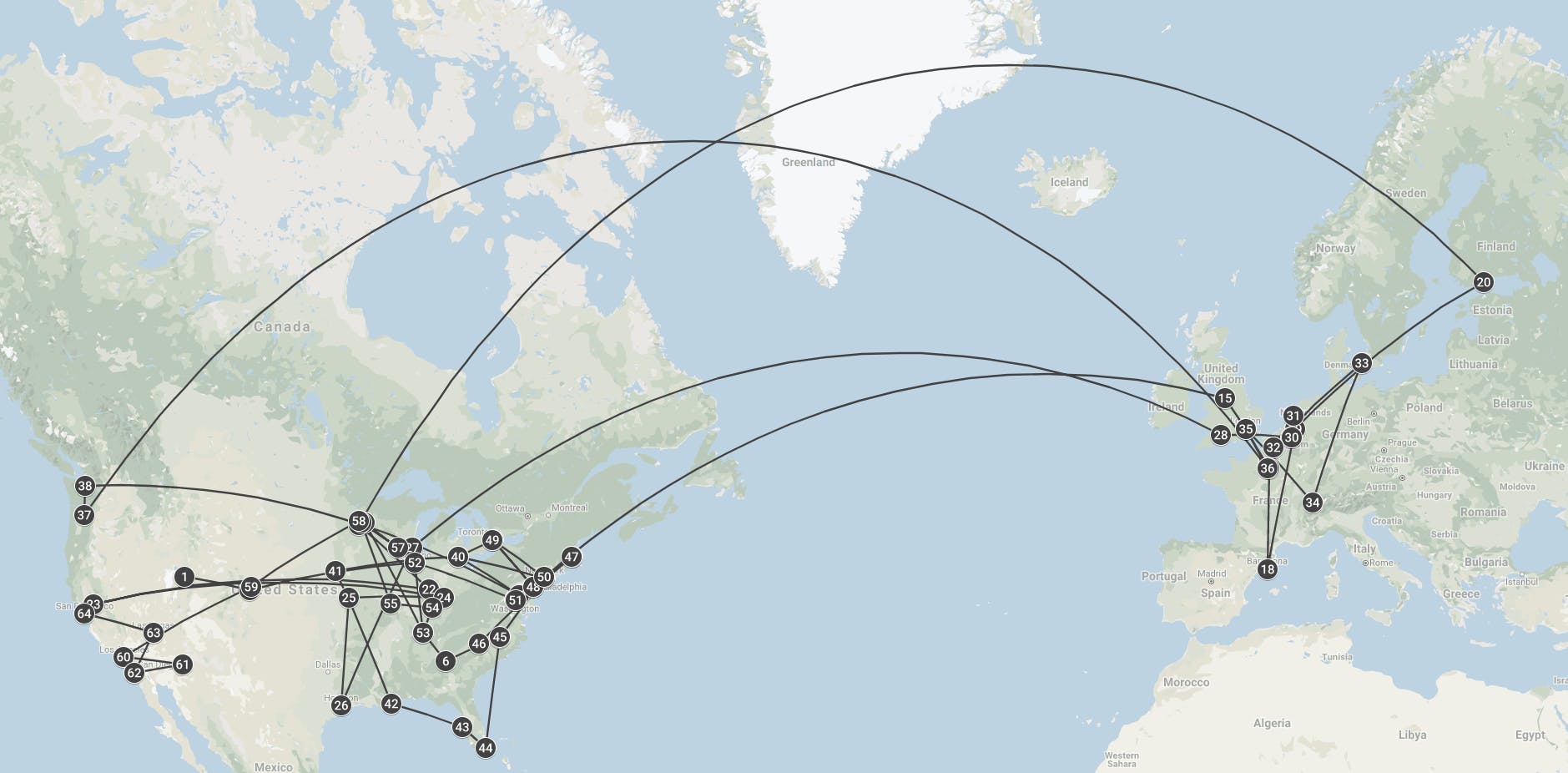
Mechanics • 20 min read
The Mechanics of Touring: How the Live Music Industry Works
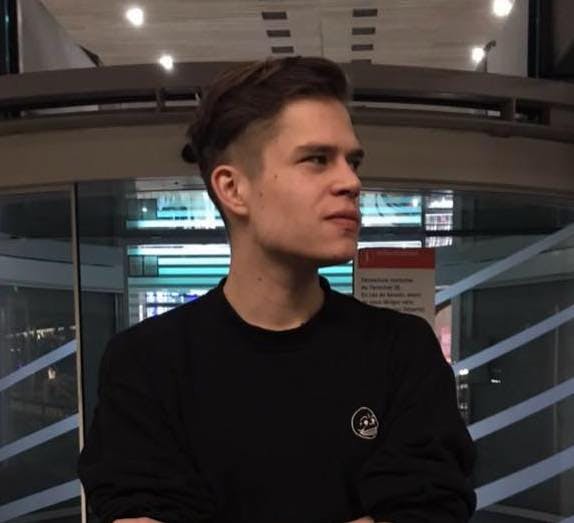
By Dmitry Pastukhov
Published April 28, 2019
The Live Music Industry: An Overview
Key players in the touring industry, artists and managers, booking agents, tour managers and technicians, festivals & venues, label & publisher, the touring cycle, 1. finding the talent, 2. building the tour strategy and producing the show, 3. booking the tour, 4. selling the tickets, 5. preparations, 6. the day x, 7. the show, tour simulation, tour gross revenue.
Touring makes up a huge portion of an artist’s life and the lion’s share of the industry’s revenues. At the same time, it is the only part of the music career that remains 99% “physical” in what is otherwise the digital-first industry. While some of the artists can easily reach millions of fans via streaming, putting together an international tour for the same crowd is an extremely complicated process.
Despite the rise of digital streaming platforms, make no mistake, live music is still the cash cow of the industry. Even though streaming revenue is expected to grow to $23 billion by 2022, by that same year the live music industry is projected to reach a whopping $31 billion in global value. Global live music revenue continues to increase (with the substantial portion of this growth attributed to the worldwide explosion of EDM festivals, which we've traced in our analyses of Chinese and Indian markets). At the same time, if we take a look at the well-established music economies, a recent Nielsen study found that 52% of Americans attend live shows at least once a year.
Nevertheless, the touring industry’s decentralized and network-based system remains a complex landscape to navigate: artists often work with dozens of local promoters, booking agents and venues in the course of a single tour. So, let’s start with the basics and identify all of the parties that are usually involved in a mid-sized tour:
Artists and their managers are the crucial elements of the live business. As we’ve laid out in our Mechanics of Management , manager’s role is to build and coordinate the artist’s team on all sides of the music industry, and that, of course, includes the concert business. The artist’s management usually takes part in the initial route planning, helps the artist pick the touring team, and serves as a bridge between the live entertainment and all other sides of the artist’s career.
The job of the booking agent itself is very easy to define: the agent represents the artist across the live industry. Their goal is to book the tour and sell the shows to the local talent buyers, finding the venue and negotiating the price. The booking deal is usually pretty straightforward: “an artist A, represented by the agent B, commits to play an N-minute show in the venue C on the day X for a $Y. ” A good agent is the one who’s able to get all those As, Bs and Cs right — so that the venue is sold out, but there are no fans left without a ticket; the artist gets paid well, but the promoter doesn’t feel cheated, and so on. While the deal is relatively simple, it’s hard to nail all the details — especially given the fact that the show are usually booked from 8 to 24 months in advance, depending on the scope of the venue.
Promoters are the side of the live business that funds the tour and buys the shows. The landscape of concert promotion is complex, and promoters themselves come in various shapes and sizes. To make it a bit simpler, imagine that promoter is a middle-man, connecting the concert space and the artist to put together a show. You can start building that bridge from either side, however.
Tour promoters set out from the artist side, contracting musicians to perform a series of concerts, paying for rehearsals, audiovisual production, covering the travel expenses and so on. Once the show is ready, tour promoters, working closely with the artist’s booking agent, either rent venues themselves or subcontract (read: sell) the shows to the local promoters (or a mixture of both).
Local promoters, in their turn, embark from a concert space. Affiliated, or at least connected with local venues and performance spaces, they buy gigs from the agents and/or tour promoters to own the ticket sales. An art-director of a small club, a local group of party promoters, a team of the major US festival — all those event promoters of different scope would fall into that category.
In that context, the role of the agent becomes clear. If promoters are the middle-men on the side of an artist or a concert space, the agent is the middle-man between the middle-men, who builds up the network of promoters (on both fronts) and artists, serving as a liaison between all sides.
However, some of the biggest tours today can be put together without the agent’s involvement. One of the main shifts in the live business is the consolidation of tour and local promoters under the umbrella of entertainment conglomerates, with the most notable examples of Live Nation and AEG .
Essentially, these companies have grown their operation to the point where they can build the bridge from both sides, internalizing all the processes. They both produce the concert tours and own (or, at least, establish partnerships with) a vast network of clubs and arenas, providing venues for the tour. Live Nation, AEG and alike can now create centralized international tours, offering artists 360° deals. However, touring under such exclusive promotion remains reserved for the artists of the top echelon — so most of the shows out there are still put together in collaboration between the tour promoters, booking agents and local partners.
Tour managers that stay on the road with the artist's crew are the oil that makes the wheels of the tour spin. Even a nationwide tour involves extremely complex logistics, and it becomes exponentially harder to manage the travel as the tour passes onto an international level. For the first-tier acts, staying on the road with the artist crew, technicians and 30 trucks worth of equipment can cost up to $750k per day . The goal of the tour manager is to make sure that the money doesn't go down the drain when the artist’s bus breaks down in Nowhere, Oklahoma . Getting the band from point A to point B seems to be a pretty straightforward job, but in fact, the routine of the tour manager is dealing with unexpected and solving a dozen of new problems each day — all while keeping the artists happy and ready to perform. To give you a taste of an international tour route, here's an approximate map of the Lizzo's tour in support of "Cuz I Love You" release, stretching over 64 locations and 74,575 km — and that is just the straight routs, not accounting for the actual roadways.
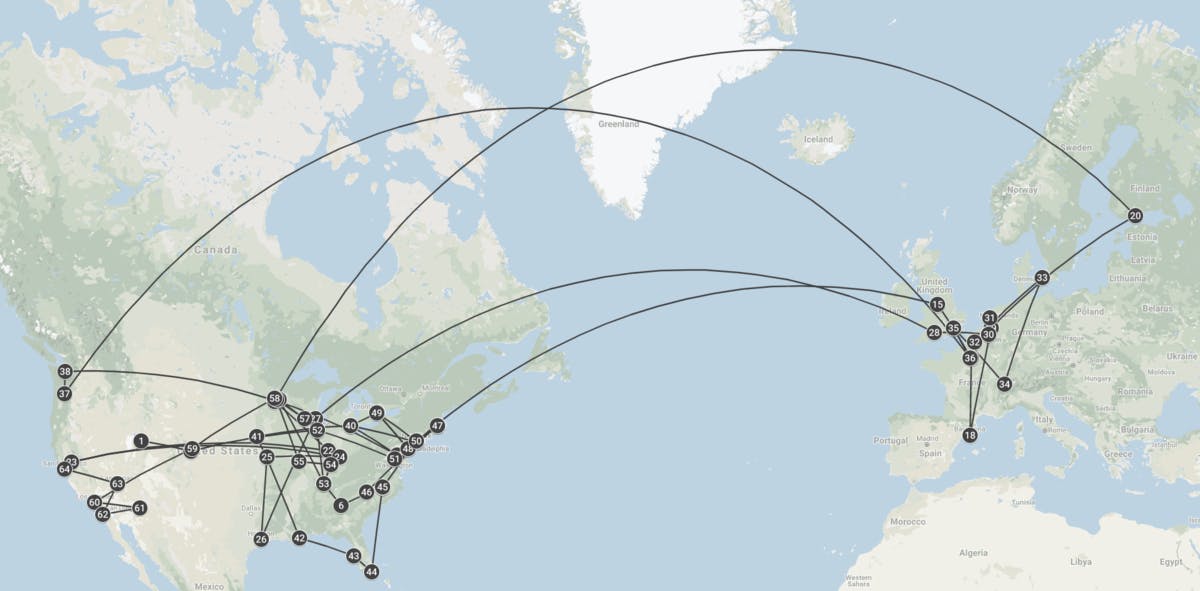
"Cuz I Love You" tour route, 30.04.2019 — 28.10.2019 (interactive version available here )
Tour managers also run the technician crew, and, while the technical support of the tour is often overlooked, the fact is that behind every show there’s a team that turns the performance into an audiovisual experience that the audience has paid to see. It takes hard work and expertise to assemble the stage, set up the lights and the sound system, etc. The live industry relies on the tech crew to make the show actually happen.
Festivals and venues are at the very core of the live business, providing the space and (usually) the base infrastructure for the show. As we've already mentioned, there’s often a great deal of vested interest between local promoters and performance spaces. That means that there’s usually a local promoter “attached” to the venue, and same goes for music festivals.
Outdoor events are a distinct part of the live performance landscape. Operated by promotion groups, prominent festivals can introduce artists to new audiences, both in terms of fans and music industry executives — all while offering a fat pay-check. A major festival performance puts the artist on the map, and the promotional effect of the show itself has to be considered. It can become even more important than the immediate monetary gain — especially for independent, up-and-coming artists. That’s why the tour routing will often be structured around a couple of big music festivals — and then filled up with solo concerts along the way. A good example is Coachella: as the event takes place over two separate weekends, most of the Coachella artists also book “side-gigs” around the area during the in-between week.
Although recording and publishing industries are not directly engaged in the live business, we have to remember that the music industry is built on collaboration . By convention, most music tours follow the release of an album, and each artist has to report his set after the show to PROs so that the proper songwriters get paid. The music industry is made up of separate companies and people working on the different parts of the artist career — and, while not completely aligned, they are always interconnected.
The six key parties described above work together to bring the live show to the concert-goers. However, it’s important to mention that they won’t always be represented by separate entities. Often some of the roles will be internalized by the different sides of the touring chain: independent artists and their management might produce the tour themselves, internalizing the job of the tour promoter; conglomerate promoters, as we’ve mentioned, can now offer exclusive touring deals; and so on. That said, in the next section we will go through the tour cycle step by step to showcase how all these players interact to create the tour. As it usually is in the music industry, it all starts with the artist.
On the first step, agents and tour promoters find and sign the performer. This process is not much different from the scouting of recording or publishing A&Rs, although the criteria might differ. For some types of artists (like DJs, for example) touring can be relatively huge, while the recording revenues might stay almost non-existent. Agents and A&Rs look for different things in the artist, but the essence of scouting remains the same across the board — identify and sign the promising acts before anyone else does.
There’s another twist to talent hunting in the live industry that is probably worth mentioning. As an average show has to be booked 9-10 months in advance, tour deals are usually signed around a year prior to the actual performance. At the same time, the vast majority of concert tours follow the recording releases to build up the momentum and ride the promotion wave. That has one unavoidable implication: tour promoters and agents sign the artist to perform the material which is not written yet, which can be quite risky.
That is especially true when it comes to the debut artists, that might not even have a 40-minute set or any solid live performance skills when they get their first touring deal. There is a lot of gut feeling that goes into scouting on the live industry side — more than in the recording business at least, where licensing deals allowed labels to mediate the risks of the creative stage.
Once the artist is on board, it’s time to produce the show and define the tour strategy and routing. At this step, the tour promoter starts the preparations: building the light show and live visual materials, booking rehearsal sessions to perfect the live performance, and so on. Meanwhile, the artist, manager, agent and tour promoter work out a general timeframe and draft an approximate route of the future tour. The initial tour planning is usually done around priority shows, like major city performances or music festivals, while the rest of the route is defined in broad strokes. Unless we’re talking about the top-tier, established artists, the tour will always follow a recording release. Once the initial planning is over, the tour strategy will be defined in terms of “The artist will play a priority city/music festival in a specific area N weeks after the release”.
Ones the initial route is set out, the agent goes on to book the tour, pitching the show to local promoters and festivals. Starting with the priority shows and then filling in the details, the tour route gradually takes its final form. The agent negotiates with local promoters to pick out an optimal venue (in terms of volume, style, conditions, etc.) to host the show. As Tom Windish, a senior executive of Paradigm Talent Agency mentioned in our recent interview , picking the right venue is perhaps the hardest part of booking a tour: the material is not out yet, and there’s no way to predict the reception of the release that’s almost a year ahead. Go for a small but safe venue — and you risk losing potential ticket sales and disappointing the fans; go big, and you might end up in a half-empty room, losing on the investment and leaving every side of the deal disappointed. The agent has to make risky decisions in a situation of uncertainty, and given the venue landscape in some of the regions, sometimes that means choosing between a venue capacity of 500 and 2000 for what is reasonably a 1000-ticket show.
As for the conditions and splits of the booking contract, generally local promoters, tour promoters, and artists will split the net profits of the show. Artists might also get a flat fee to ensure they'll make some money even if all other parties do their job poorly. Usually, the more the flat fee, the less the artist’s share of the net profits (and vice versa). In that sense, the structure of the contract splits often reflects the artist's risk appetite: some artists self-produce the tour, sacrifice the flat fees and end up getting almost 100% of the net. Others might ask for a higher "safety" fee, lowering both the profits of the tour and their own stake in it. Booking agents, in their turn, earn a flat percentage on the revenues ‘on top’ (though they might put their share back in the pot if the tour doesn’t turn out a profit). That might be a lot to take in, but don't worry, we will get back to the splits and give you a clear example with a tour simulation you can find below .
Once the tour is booked, it’s the time to promote it and sell the tickets. On paper, the ball is in the promoter’s court here, but in reality the marketing of the tour is carried out in close collaboration between all the sides — from managers and booking agents to the artists' record labels. Concert marketing is a topic worthy of a separate article, but if we were to simplify things, it could be separated into two main parts.
First is the overarching tour marketing, implemented by the tour promoter and synchronized with the record release. The tour marketing campaign utilizes wide communication channels to promote the tour in general rather than a particular show. Second is the regional marketing owned by the local promoters, which aims to boost the sales of a specific show, focusing on narrow communication channels, like radio, OOH and locally targeted digital advertising.
As far as the actual ticketing strategy is concerned, there’s no one-size-fits-all solution, so most teams go through long and numerous meetings to define tit There's a lot of decisions to be made when settling the details of the ticketing strategy — especially as technology has put new tools into the hands of promoters — but generally accepted sales process follows an “announcement → pre-sale → general sale” pattern. First, the tour is announced through the label- or artist-owned channels. That announcement is both a chance to communicate the tour to the wide audience and build up the artist’s CRM-base by nudging fans to leave their contacts to get notified when tickets go on sale. On the live event market, the buying intent might not realize itself on the first day — so having direct contact with fans and growing the artist's CRM-base is a key tool in the hands of the industry.
Then, the pre-sale takes place: first, reaching out directly to fans in the CRM database — after all, artist-fan relationships are one of the most important assets of an artist, and a fan pre-sale ensures that engaged followers will be able to get tickets to the show. Pre-sale strategy might also involve sales through “preferred partners”, focusing on direct sales through systems like American Express PreSales in the U.S., or even Spotify, that allows to reach the artist’s fans and followers across the tour route based on their listening habits and geo-location. Finally, to complete the pre-sale, local promoters can also use the local communication channels, like CRM-base of the venue and local airplay.
All the pre-sale strategies have two primary objectives. Firstly, based on the pre-sale figures (and historical concert attendance data), the promoter can roughly tell how the show is going to sell in general — and adjust the marketing campaign accordingly. Secondly, pre-sale through reasonably closed off channels can help to mediate the problem of the secondary ticket market. In fact, most of the ticketing strategies aim to sell as many seats as possible before putting the show on the general sale. Ticketing platforms like Songkick, BandsinTown or Seated allow promoters to reach the widest audience but they also puts the show at risk of selling out to the scalper bots in a matter of hours. This is especially true for the biggest artists out there — the more the demand for the show, the more attention it's going to get from the scalpers.
At this point, the tickets are on sale and the date is coming up, but there are still a lot of details to cover to make the show actually happen. Carrying out a 100-show tour means getting the artist and his tour team to a hundred different locations across the globe — all while staying on a tight budget and an even tighter schedule. Then, you have to make sure that every step of the way the artist has the infrastructure to do the actual show. Big tours are extremely complicated logistics, that require a lot of planning (usually carried out by the tour manager, affiliated with the tour promoters). Plane tickets, car rental, backline equipment shipping — this is just a fraction of what needs to be taken care of before reaching the venue.
The venue is (hopefully) sold out, the material is well-rehearsed, the equipment is delivered to the club — but the show is still to be done. Someone has to set up the sound, check tickets at the door, take care of the security, prepare the guest list and set up the bar. This routine can seem insignificant at times, but in fact, a solid on-site setup is a must if you want the audience to enjoy the performance. Surely all of us can remember that one concert with that hour-long queue, delayed performance and warm beer at the bar — a poor concert organization can ruin even the best of shows. Making sure that the concert goes smoothly is a group effort of the tour crew and the local promoter's team, from tour managers and technicians to local sound engineers and the venue stuff.
Finally, one year, tens of thousands of kilometers and thousands of man-hours later, the artist will go on stage. Then, the team will get back on the road to repeat steps 5 through 7 over and over again, until the final row of the tour announcement is crossed out. The artist will eventually get back in the studio and start working on the new material, while tour promoters and agents will begin planning the next tour. That’s the tour life .
To conclude the Mechanics of Touring, we want to share with you an example of how the tour budget and profits are structured. Below, you will find a somewhat simplified (yet accurate at its core) budget simulation of an averaged tour. While the actual “business plan” will be much more detailed, the data below should give you a good idea of who pays for the tour and who ends up making money on it.
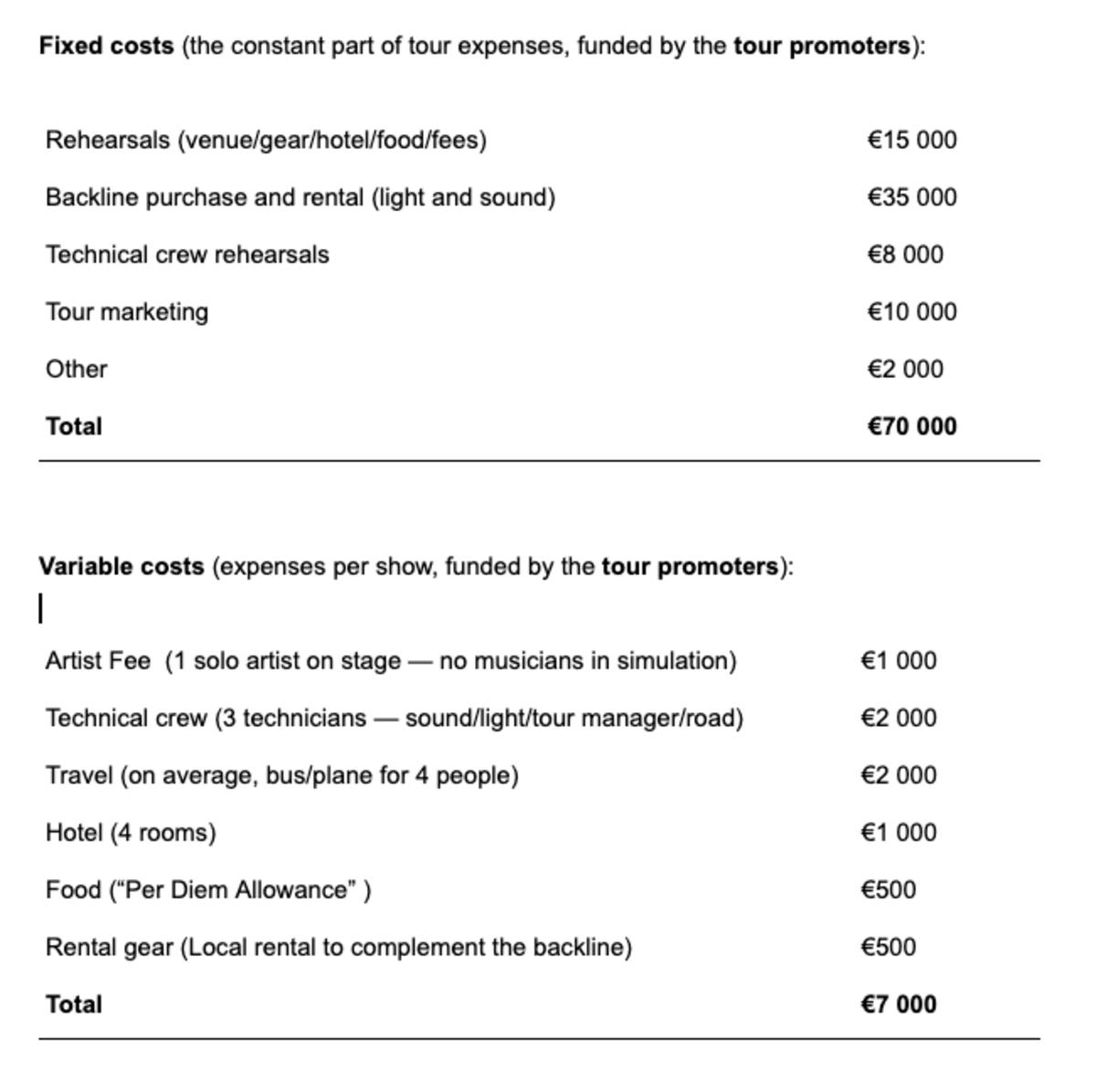
Total Fixed and Variable Costs
So, the tour has fixed costs of 70,000€, which have to be covered regardless of the tour length, and variable costs of 7,000€, per show. Such costs structure means that (and this is true for practically every tour) we will enjoy the scale effect , as total costs per show (calculated as (FC+ VC*N)/N, where FC is Fixed Costs, VC — Variable Costs and N is the Number of shows in the tour) will go down as the tour grows, due to the depreciation of the fixed costs.
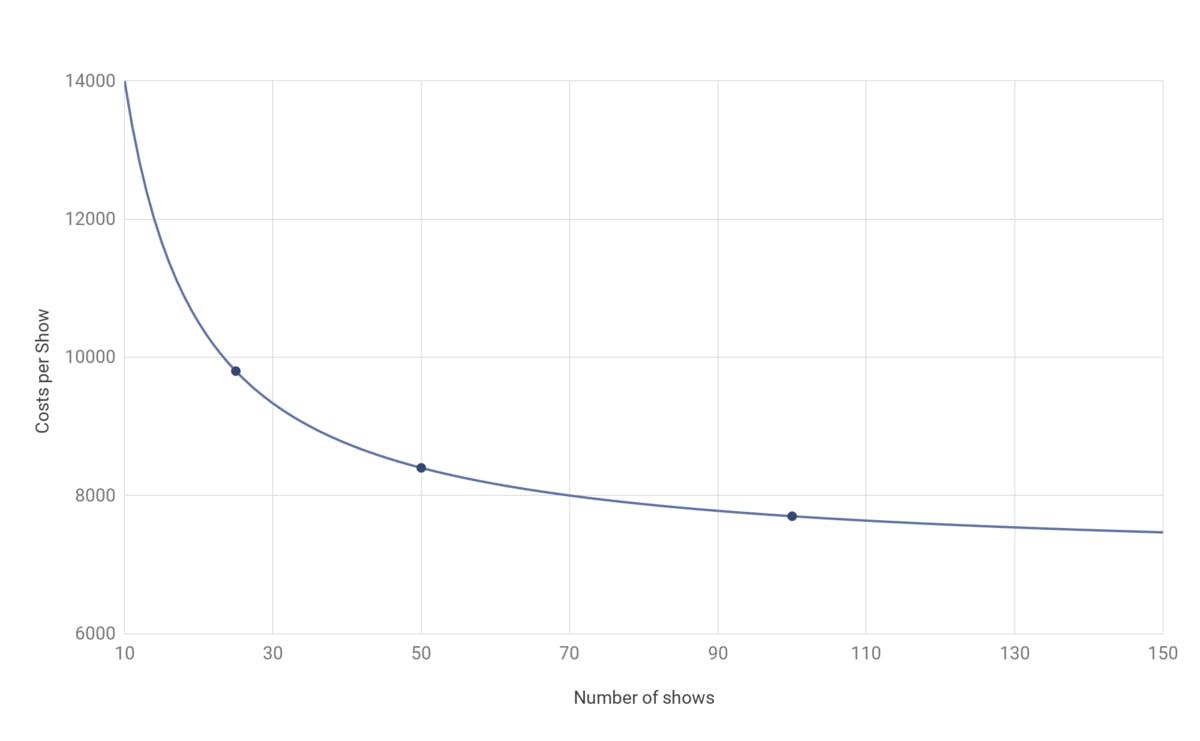
Total costs per show, for 10-150 concerts in a tour.
To go forward with the simulation, we will assume that the shows of the tour are all booked at the same price (which is never the case due to the difference in the local ticket prices, venue and market capacity, and other specifics). However, to simplify things, we will use the following revenue structure:
Guarantee per show = 8,000€
Bonus if sold out = 2,000€
If we plotted the tour’s total profits as a function of the number of shows, P/L = (Revenue per show * N) - (FC+VC*N), we would get the following:
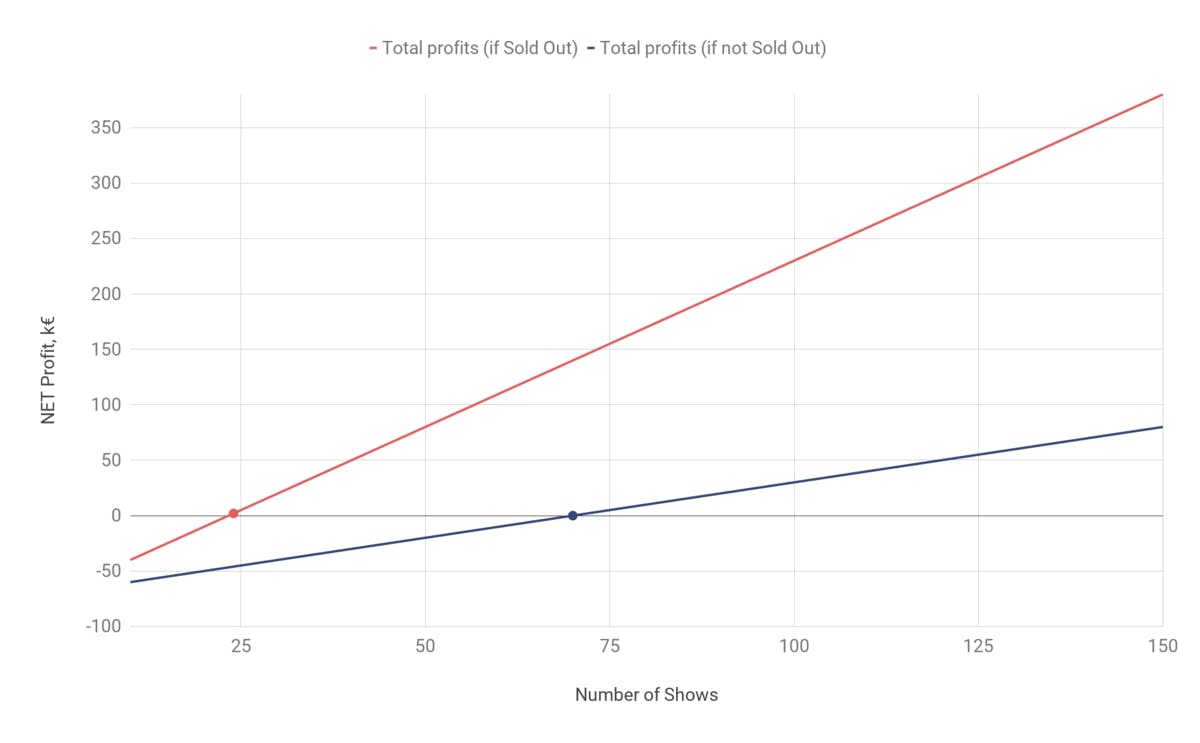
Tour P&L (overall profit/loss before splits)
As the total costs per show go down against a constant revenue, the tour turns a profit, breaking even at the 24th and 70th show for “Sold Out” and “Not Sold Out” scenarios accordingly.
Then the time comes to divvy up the profits. First of all, the agent takes a share of all revenues “on top”. In this simulation, we will use a 15% split for the agent. So, if the tour is made up of 100 sold out shows, the agent would get (10,000*100)*15% = €150,000 in fees. However, it’s not customary in the music industry for one side of the deal to make money while the rest are losing. So, usually, the agent won’t take their share if the tour doesn’t turn a profit. But what if the tour makes a bit of money, but not enough to cover the agent’s 15% “on top”?
There are a couple of roads the agent might take in that case, cutting their share down to 5% or taking a percentage of the profits, rather than revenue, but for purposes of this simulation, we will assume that the agent will take their part of the share, but won’t put the promoter back in the red. So, if the tour has made €5K in NET profits by selling out 25 shows, the agent will take €5,000 instead of agreed upon (25*10,000)*15% = €37,500.
Tour promoter will take a share of the NET profits (Total Revenue — Agent’s Share — Costs). That would mean that, although the tour itself will break even on a 24th show in the Song Out scenario, the tour promoter will start making money only after the 47th show (once the agent is fully compensated). If we assume the tour promoter’s share at 20%, on a 100-show, sold out tour they will make ((10,000*100*0,85) - (70,000 + 7,000*100)) * 0,2 = €16,000 . It might seem that the promoters get the short end of the stick here, but in fact, they will often make quite a bit of money in the venue itself on things like bar and parking. This can be a substantial or even primary revenue stream for the promoter, but we’ll have to leave it out of the scope of the simulation for the sake of simplicity.
As for the artist , they will earn a flat fee (in this simulation €1,000 per show) as well as the remaining 80% of the tour’s NET. This sum will make up the artist gross, which in its turn will be divided between the artist and the management (an average manager’s share is around 15% ). So, for a 100-show tour the artist gross will be: (100*1,000) + ((10,000*100*0,85) - (70,000 + 7,000*100)) * 0,8 = €164,000 , which would then be split 85:15 between the artist ( €139,400 ) and the manager ( €24,600 ).
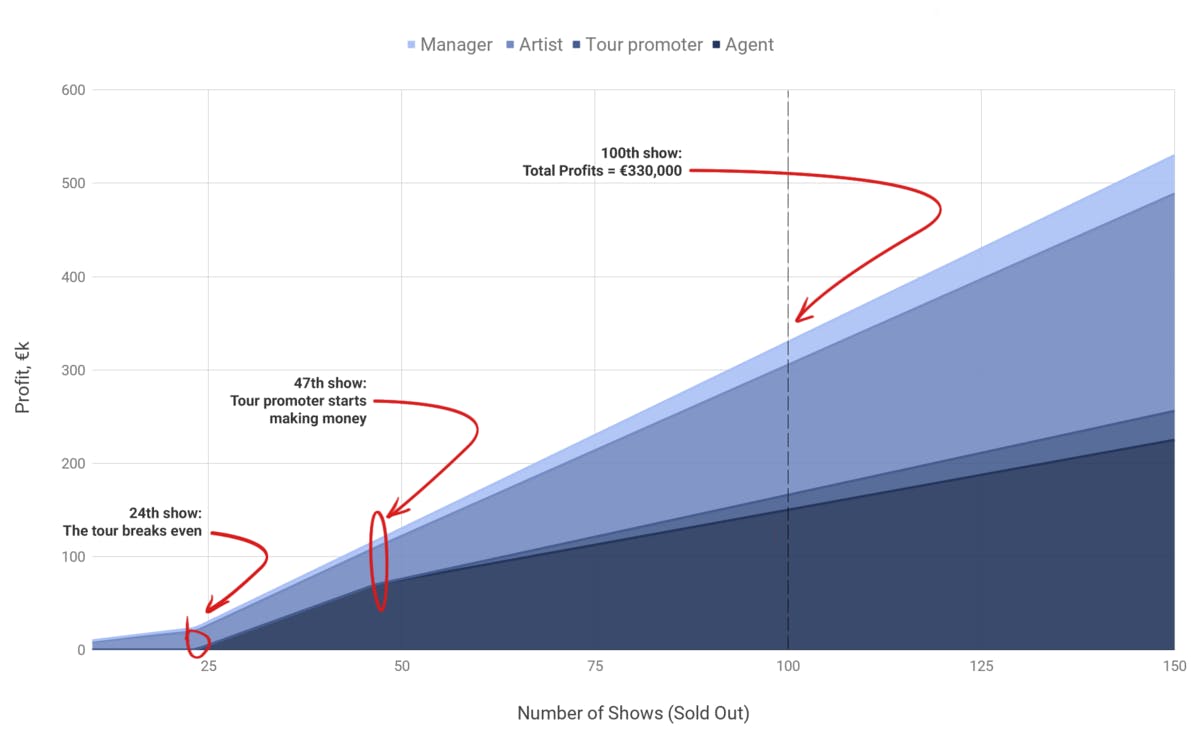
Tour profits distribution, by party
Of course, the actual tour will be much more complicated than in the simulation above. However, it should give you a good idea of how the tour is structured and budgeted. That’s it for this episode of Mechanics, but don’t worry — we’ll keep working to bring you insights on other parts of the music industry. If you liked this article, take a look at our Mechanics of the Music Industry to get the overview of the topics we covered so far — and the ones we plan to cover in the future.
Share this article:
Dmitry Pastukhov
Content creator for Soundcharts. Deciphering the music business so you don't have to.
Related articles
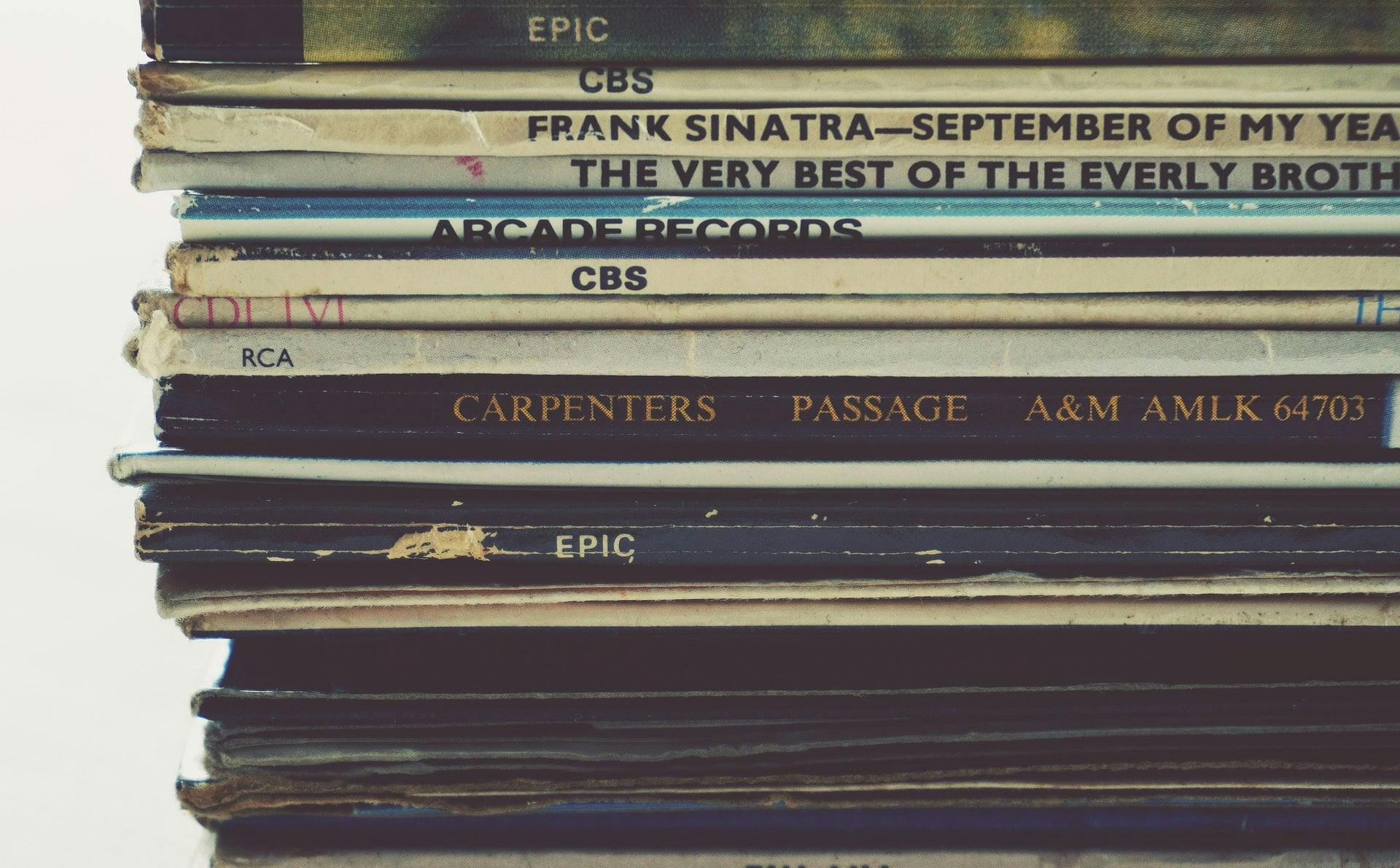
December 31, 2023 • 12 min read

January 1, 2024 • 14 min read

5 Types Of Concert Promoters Every Artist Needs To Know

At a time in history when music sales are continually fleeting, the live performance has never been more important. For many artists it generates their most significant revenue stream.
From local open mics to concert tours and festivals - there are a lot of key players that keep the live music machine moving behind the scenes. Since this is such a critical part of the music industry, it’s important to know who these players are no matter what stage you’re at in your career.
There’s a lot of ground to be covered here: venue owners, promoters, booking agents, managers, stage crews, live sound engineers, security, ticketing vendors, and more. I’d suggest at the very least making sure you have a basic understanding of each of these roles.
Right now we’re going to focus on just one of them: concert promoters . Arguably the most important for you to know, especially early on in your career. Why? Because reputable managers and booking agents (the people that can quantum leap your live show opportunities) don’t typically show interest in artists until they have established their own track record of performing. How do you establish said track record? By building relationships with promoters.
But first, if it's your aim to do music professionally, you'll want to check out our free ebook while it's still available:
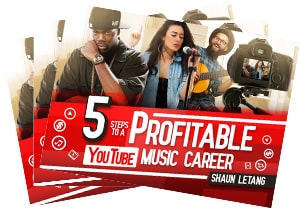
Free eBook: Discover how real independent musicians like you are making $4,077 - $22,573+ monthly via Youtube, let me know where to send the details:
What Do Concert Promoters Do?
A concert promoter (also called talent buyers ) pays artists to perform live at a certain location at a certain time for an event. Often times they pay for all of (or most of) the expenses associated with that event in hopes that the event generates enough revenue (usually through ticket sales) to cover the costs and make money.
There are a ton of different types of concert promoters. But if you boil it down they all do one thing: pay artists to perform live. They buy talent . I use the terms “pay” and “buy” loosely because payment isn’t necessarily always monetary. For example, in-house promoters for small venues sometimes offer exposure as the only payment for new or small bands when booking them to perform.
Having a basic understanding of what concert promoters do and the role they play is essential. That said, information by itself is not enough to begin cultivating good relationships with the right promoters. You also need to understand the different types of promoters so that you can identify which type you should be targeting with your networking efforts.
There are plenty of variable circumstances and business models, but generally speaking the type(s) of concert promoter you should be focusing on will fit into one of the 5 categories below, no matter where you are at in your career.
1. In-House Talent Buyers For Bars And Clubs
Most bars, clubs, and small venues that host live music have one person or more in charge of “in-house promotion” or booking for shows. Sometimes this is their main role within the establishment and other times either the owner or one of the staff members handles this as one of their many responsibilities. When you’re first starting out getting ANY promoter to give you the time of day, even these guys, can seem like an impossible feat. But getting on the radar screen of these promoters is usually the first step to breaking down those barriers.
2. Independent Concert Promoters
Independent talent buying operations are usually ran by a single individual or a small team. They are not owned or employed by any specific venue although they often have partnerships arranged with one or more of them. Sometimes, in-house promoters for venues run their own indie promoter business on the side.
Indie promoters are true “hard ticket” talent buyers because ticket sales are their primary revenue source. They pay to rent the venue, secure the talent, and for just about everything else - printing posters, online advertising, ticketing fees, security (sometimes included with the venue rental), etc. The plan here is that after funding, planning, and coordinating the whole event it will sell enough tickets to recoup those costs and turn a profit.

These promoters are often the most valuable for artists early in their careers. Why? Because some of these promoters throw shows comparable to shows being thrown by large venue buyers (which we will talk about next) - but the difference is these indie promoters are sometimes easier to reach and willing to negotiate more favorable terms. I have also noticed they’re more likely to portray an “in it for the music” attitude. Therefore they are often times more willing to show interest in local artists beyond just thinking about how many tickets they can sell.
3. Local And Regional Talent Buyers
This one might be the most difficult threshold to breach. Although the national and international talent buying corporations that we will discuss next are considerably larger; working with them does not take much effort on the artists’ part once you are established enough to have their attention.
“Large Venue Talent Buyers” usually dominate a local scene or region. They might not possess a full monopoly on the area, but they are the most prominent force. Typically the concert promotion business and the main venue it books talent for are owned by the same person or company. Often times they even own their own ticketing service provider.
Although they are not paying to rent venues they are paying to run one. Between that and the concert promotion and ticketing operations a lot of people need to be employed and a lot of overhead is created. It’s not just ticket sales, but the combined revenue streams that keep these operations a float: ticket sales, ticketing services, liquor and beer sales, sponsors, etc.
There is usually someone or multiple someone’s who has the sole job of “talent buyer” and establishing a good relationship with that person specifically can be a game changer. Not only is this person directly in control of being able to place you in front of large crowds, but they also have a myriad of relevant connections in the local scene from popular artists to influential people in the press.
4. National And International Giants
By the time you’re ready to worry about these guys you’ll probably have your own dedicated team of highly capable professionals handling all of the legwork for you so you can focus on what you do best, being a rock star. Nevertheless, it’s still important to be aware of this upper echelon and it’s main participants because they really do monopolize this category. In fact, the two global giants AEG Live and Live Nation control an estimated 70% of the box office. But there are several other big contenders in this space, some of the more notable of which are “indie promoters” in their own right and grossing millions of dollars annually.
5. Bad, Slimy, And Scam Promoters
Always research who you’re dealing with. If you’re actively trying to establish rapport with targeted promoters then you should already have a good idea of which promoters are most valuable for you to know. Beware of promoters with bad reputations, slimy “pay-to-play opportunities” (they aren’t always slimy, but they’re rarely the best investment you can make), or scam-y businesses like Afton (if you have a ReverbNation page for your music then you’ve probably already gotten emails from them).
All of these succubus promoters prey on naive artists and they are hidden in each of the four categories mentioned above so I’ll say this one more time: make sure you always know who you are dealing with. It doesn’t hurt to make informed, strategic decisions, too.
As you can see, at times the above five categories cross into each other. There are talent buyers for bars, clubs, small venues, medium-sized venues, ampi-theaters, tours, private events, sport half-time shows, festivals, conventions, colleges, after parties, and more.
The focal point of your strategy as an indie artist or band should be one or more of the first three categories depending on where you are at in your career. New acts with small followings typically start with category one and climb their way up. But maybe you’ve paid your dues in the first category and it’s time for you to shift focus to the next step.
What’s most important to take away is that you should know which category to target, and then spend some time researching who those promoters are in your local market and specifically which promoters you’re most interested in working with. You should be considering what type of shows they do, how successful their shows are, what their reputation is, and how accessible they are. Next, you need to develop a strategy to build a good relationship with them. Essentially, you need to find a way to add repeated value for them in hopes that it gets reciprocated.
P.S. Remember though, none of what you've learned will matter if you don't know how to get your music out there and earn from it. Want to learn how to do that? Then get our free ‘5 Steps To Profitable Youtube Music Career' ebook emailed directly to you!
Similar Posts

What Is A Cover Band, How To Become One, And Ideas On Which Songs To Play
I’ve talked a fair bit lately about ways to make extra money playing music. There are plenty of ways to monetize your music career as an original artist, but there’s no shame in playing other people’s music as well. Many great musicians grew up playing covers, singing in lounges, and playing for tips. It’s a…

How To Book Effective Shows
So you’ve decided it’s time to hit the road. That’s an exciting step in your musical journey, but it can be a daunting task. The only way to do it without becoming overwhelmed is to adopt a methodical, step by step approach, with a clear vision and realistic goals. Today, I will be focusing on…

How To Increase Your Gig Attendance
Playing shows is fun, but they are much more fun when you have someone to play to. When you start playing shows, there’s a good chance you’ll play at least a few with low attendance. It’s good to get used to this. As you build a local following, and decide to play in other cities,…

How To Develop And Improve Your Stage Presence For Musicians
Stage presence is more important than you may even realize. It has a huge impact on how well your show is received, and ultimately how much merch you’ll sell at your gigs too. It make take some time to get your act together, but when you see the audience rushing your merch booth at the…

Should I Drink Alcohol Before A Gig?
Question: Should I drink alcohol before a gig? If you can help it, no, you shouldn’t drink alcohol before a gig, and I’ll tell you why. I know gigging can get nerve wracking sometimes, and it’s often the easiest option to turn to alcohol in an attempt to calm your nerves. That said, drink can…
How To Find Venues To Play Music, For Solo Musicians And Band Tours
If you’re a musician or band looking for venues to play music at, you’re in luck. Today I’m going to show you how to find shows to play, whether you’re looking for a one off gig or to book a tour. You should also check my guide on how to get gigs as the below…
Very helpful, thank-you!
You’re welcome JJ. 🙂
Comments are closed.
We've detected that Javascript is not enabled. It is required for an optimal survey taking experience. Please check your browser's settings and make sure Javascript is turned on. Learn how to enable Javascript.
- Music Career Finder
Start Here:
- I am a musician or performer
- I just want to work in the music business
- Singing & Rapping
- Songwriting & Lyrics
- Music Recording
- Music Production
- The Music Business
- Piano & Keyboard
- Music Publishing
- Studio Musician
- Music Journalism & Writing
- Live Sound Technician
- Merchandising
- Bass Guitar
Concert Promoter
Career Overview
Concert Promoters organize shows by booking talent, securing venues, and marketing their events.
Alternate Titles
Talent Promoter, Promoter
Avg. Salary
Salary Range
$28K-$187K 1
Table of Contents
Career Description
Career outlook, career path, experience & skills, education & training, additional resources.
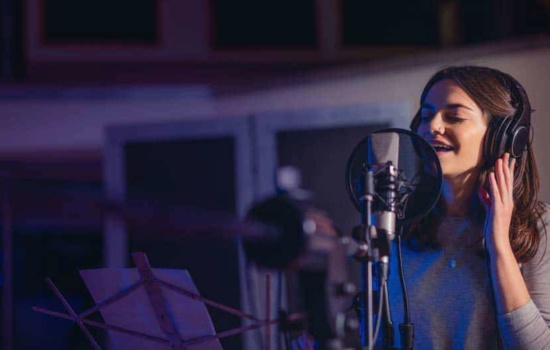
Learn to Sing: What Is the Best Way to Learn Singing?
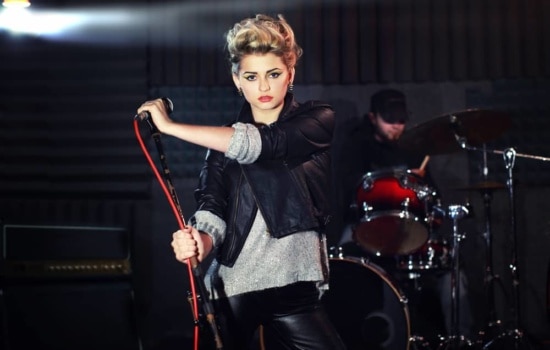
Becoming A Vocalist: Follow These Steps

Best Music Schools 2024: Who Has the Best Music Programs?
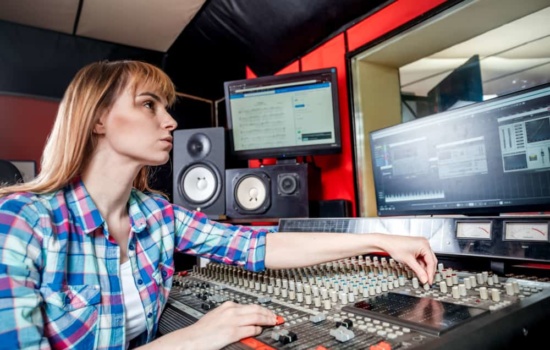
What Is a DAW (And What Can You Do With It)?

Best Online Guitar Lessons: Can I Learn Guitar Online?
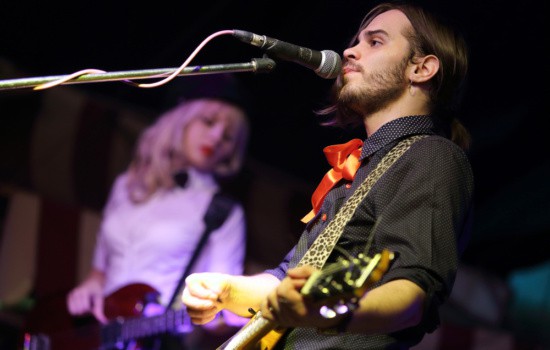
Music Copyright Laws Explained for Musicians

The Top 15 Highest Paying Music Careers

Music Marketing Strategies for Artists

Music Industry 101: What To Know Before Pursuing a Career In Music

Music Royalties 101: How Artists Make Money from Music
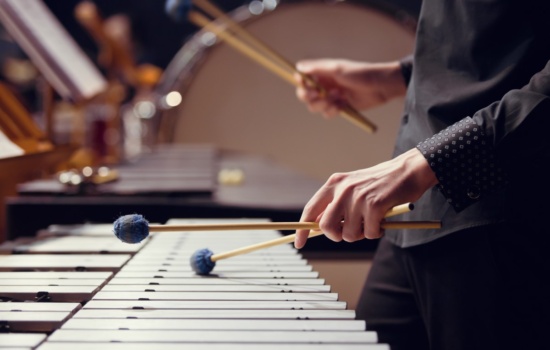
10 Easy Instruments To Learn for Beginners

How to Make a Music Video

The 10 Best Music Books for Songwriters, Artists & Industry Professionals

How To Learn Piano Even If You’ve Never Played

4 Song Structure Types to Know & When to Use Them in Your Songwriting

What Is Music Composition: How To Become a Composer

ASCAP vs BMI: What’s the Difference and What Can They Do for You?
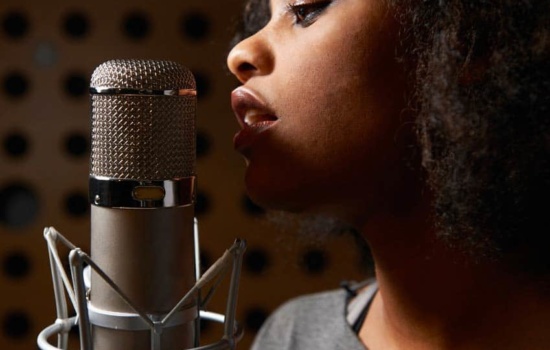
Everything You Need To Know About Voice Training

25 Best Music Colleges in The US
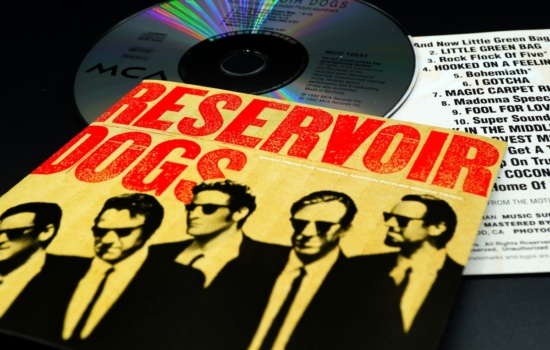
Film Scoring: Learn How To Write and Produce Music for Film and TV

How To Become a Concert Promoter
People also ask.
What does a concert promoter do?
Do concert promoters make money?
Who is the largest concert promoter?
What is the difference between a concert promoter and a producer?
San Francisco Concert Promoter Robbie Kowal of HUSHConcerts says, “I like to say we’re not in the music business, we’re in the people business. Bill Graham used to be famous for saying that. Our job is taking care of the boring stuff behind the scenes so madness can ensue. What does that mean?
“We have broken it down to anywhere from sixty to eighty individual tasks to be done to run a successful show. Each one of these details is no more important than the others. For instance, there’s getting the right artist and the right venue, making an offer to the artist, agreeing to a deal with the artist, booking support, getting the artwork done and approved, and building the marketing and advertising plan.
“Then you start getting into twenty different tasks just in marketing, [including] four different things on Facebook, and knowing how to use your own email list most effectively. All these different things go into promotion of the show. You have to do the hotels, ground transport, backline , get them the schedule of load in and load out times, all those production things.
“Any one of them, if done incorrectly, can shut down the entire show. When the artist is flying in and your guy isn’t there to pick them up, the artist will be pissed. That’s a problem.
“[It’s the same] if you use the wrong photo or misspell something in the flier. If you pick the wrong date, artist, or venue, that can change everything too. At the show itself, maybe the sound isn’t mixed right or the lighting isn’t arranged the way the artist wants it. It’s very detail-oriented and math-driven.”
Since Concert Promoters have a hand in all aspects of throwing an event, they work with a wide variety of people, including Talent Buyers , Personal Managers , Booking Agents , Nightclub Managers , DJs , Club Promoters , Poster Artists , Public Relations Counselor , Advance Person , Tour Publicist , musicians, and Lighting Technicians .
Concert promoters play a pivotal role in the live music industry by orchestrating and overseeing the various elements involved in staging a successful concert or a similar kind of event. At the core of their responsibilities is the intricate task of liaising between artists, venues, and other stakeholders to bring live music experiences to audiences. It sounds simple enough, but it is far from it.
Concert promoters are essentially the architects of almost every concert. They’re responsible for negotiating contracts with artists and their teams, securing suitable venues, and meticulously planning logistical details such as ticketing, sound engineering , and stage setup. They navigate the ever-changing landscape of the music industry, utilizing their (hopefully) keen understanding of audience preferences and market trends to curate events that resonate with large crowds that should, in theory, make everyone involved money.
The average annual salary for a Concert Promoter is approximately $78,600. Concert Manager salaries can range from $28,000 to $187,000.
“We never made what people consider a full-time salary until very recently,” Kowal says. His experience is not atypical. He says, “An independent Promoter gambles on every show they do. If the band gets paid in advance and the club gets paid, we only get paid after everybody else gets paid out.”
“It took years and years to get it right. Small-scale concert promotion is the riskiest role in the entire business. Anybody can do it, but to build a sustainable business is very difficult. All the successful Promoters who make money have some other source of income that helps to support it.”
“Another Planet, for example, own the Independent, have exclusive booking arrangements with the Fox Theater and get the bar at the Fox Theater — no matter what happens to the Promoters, the bar always makes money. As an independent Promoter, there are certainly times at a club where you’ll get part of the bar but it’s very rare.”
Concert promoters have the potential to generate serious revenue…though it’s not a guarantee. One primary source of income for concert promoters is the profit earned from ticket sales. Promoters negotiate deals with artists and venues, calculating the budget for the event and determining ticket prices to cover costs while ensuring a profit margin.
Additionally, promoters may earn revenue through sponsorships and partnerships with brands looking to align themselves with specific events or genres. While some of that money may go to the promoter, the musicians themselves, as well as the venue, from time to time, may also insist on getting in on that action.
Furthermore, savvy concert promoters diversify their income streams by exploring ancillary financial avenues. This can include merchandise sales at events, concession deals, and even streaming rights for live performances.
It’s important to note that a concert promoter’s financial success depends on factors such as the popularity of the artist, the efficiency of event planning, and the ability to effectively market and promote the concerts. While there are potential financial rewards, the industry also carries inherent risks, and success often requires a combination of business acumen, industry connections, and a deep understanding of the ever-evolving dynamics of the live music landscape.
Hey, what do you think about trying our new Music Career Helper Music Career Helper really quick? It’s totally free and could help get your career moving fast! Give it a try. It’s totally free and you have nothing to lose.
Concert Promoters handle business activities during the day and spend evenings and weekends at shows — both their own and those put on by others. For many, though, concert promotion isn’t the only way they earn a living.
Kowal says, “I do like four or five things in music to make a living. It’s just like being a guy in a band; he’ll play in another band, he’ll teach lessons. If you really want to do this, you have to be willing to do anything and that’s the first point I would make.
“It’s one of those things everyone wants to do like being the quarterback of the Denver Broncos or something. If you want to be that person you have to not only have talent but you have to work harder, work longer hours, do the things people won’t. If you’re not willing to work hard you should look elsewhere. There are probably people who just walk into stuff but they’re certainly the exception.”
The nature of the business itself is turbulent. Kowal says, “Even if you think everything will go right with a hot band, a hot club, and a great night, it can go wrong. Some Promoters really play nasty with each other and actively try to put each other out of business but luckily not in my market. If people are at your show, they’re not going to be at theirs.
“The way things are working today with dance music talent, it used to take three or four years for an artist to establish themselves and sell out a club. Today with social media an artist can put out a track on YouTube, it picks up steam on SoundCloud and pretty soon they have the ability to sell 500 tickets.”
“The Promoters and Talent Buyers have never even heard of the guy; the Booking Agent calls us and says ‘this guy is super hot.’ [We put on the show and] we do well, but next time maybe he’s not as hot. The up-and-down is tough.”
Live Nation Entertainment is widely recognized as the largest concert promoter globally. Live Nation is a prominent entertainment company that operates in various aspects of the live music and events industry, and some would call them a monopoly of sorts. They are involved in concert promotion, ticket sales, artist management, and venue operations. Live Nation’s dominance extends to many countries, and its is known for organizing a vast number of concerts and events featuring a diverse range of artists and genres.
Advancement in this career means booking bigger name acts, pulling in more money, and ultimately, being able to make your living off concert promotion. Most Promoters begin their careers as Interns with a concert promotion company, serving as Assistants, then throwing their own small-scale gigs. Others start as performers themselves.
Kowal explains his own career trajectory: “I was a touring DJ for a long time before I became a Concert Promoter. [HUSH co-founder] John and I met because he was booking me as a DJ and at the time I had this DJ residency at this really small bar. It was aimed at funk and soul geeks and every week I’d make a little newsletter to put on the bar so people would know what I was concentrating on that week.
“People started emailing me to find out what was going on and before I knew it I had thousands of followers. Before I knew it I had the power to deliver human beings to a club and I had venues. (The neat part was I could get into shows for free and they’d also book me to DJ.)
“John Miles, who was a little more advanced than me [in his career], was promoting at a few tiny bars and clubs. He would book me to DJ and see I was delivering and drawing in people through my newsletter so we talked about it and decided ‘Why don’t we put some shows on together?’
“Early on it was really simple. I would book the bands and DJ; people would show up or not show up. I had the idea I wanted to put on a funk festival. I had read this book about what funk really means and I wanted to put on a festival that spoke to that. It was pretty naive and ambitious.
“In 2001 I was still working a day job to support myself and right around August 2001 John and I found a guy who would give us $10,000 to put on a funk festival. We decided to do it and started working on it. John was already a Production Manager for a local jazz festival so he knew how to do stuff like that.
“I quit my day job on September 5th, 2001 and we know what happened on September 11th. We went from ‘hey, we’re launching a funk festival at the perfect time’ to ‘we’re launching a festival and starting a company at a time when people really don’t want to party.’
“The whole landscape changed. It’s an incredibly risky business. So many things can go wrong. It wasn’t like I could go back and get another day job; I really had to stick it out because there wasn’t anything available. We were very poor for a very, very long time.”
To land a first job in concert promotion, Kowal advises “the first thing to do is build a resume. Don’t even reach out till you know how to use Photoshop, how to use Excel and writing. Start your own blog or contribute to one so you know how to create copy and content. With the people who come to us and write for blogs, I can read their work, and these skills are invaluable to someone like me.
“[On the other hand] I’ve had people come to us and show us their resume and they don’t have the skillset yet. I say, ‘Go out and learn these things.’ They come back, and at this point, I don’t have time. Either come to me with these skills or it’s useless to me. It’s amazing when someone comes to us and has those skills and I don’t have to teach them.”
“Build those skills first, go to a lot of shows and find out which club you want to work for or which Promoters. Where would you want to spend your time? You can find out a lot.
“Some people don’t even think about that stuff and are like ‘I’ll take anything.’ You should think about that stuff because your life could change tomorrow. Make sure you’re spending your very precious time on this earth with people you want to spend time working with, in the places you want to be doing it, even if it means you have to wait longer.”
“Make some art. Learn how to get a good picture in a nightclub. Learn how to create content. Learning how to promote is communicating to people and learning how to create great content is a key part of that communication. Start a blog on what happens in bars at your college, or start the coolest blog on the music scene around your college.”
“Learning how to create great photos and turning that into Facebook posts or something is the difference, in some cases, between an internship and a job — and it’s fun. Whatever you’ve created, you’ve done essentially what I did with my newsletter twenty years ago.”
“I wanted people to come out and see me DJ, so I taught myself Photoshop and graphic design and designed pretty much 60% of our art. You can easily tell I never had graphic design training so some of it sucks but it saved us $250 a show and that’s real.”
“Learn now to be a performer of one kind or another — whether it’s learning to DJ or play guitar. To some degree, as Promoters our job is a sacred responsibility. Take the time to learn how difficult it is to play music (and especially in front of other people); it takes years or months.”
“You want to learn that process so when someone comes to play, you can help set up their gear or at least know what they’re going through. The people who come to work for me have to maintain that standard. We don’t slack because doing so would be letting the artist down.”
“We have a responsibility to the artists who put their careers in our hands. Understanding that artistic process is really important. Ex-musicians can sometimes be very good production professionals. They get the gravity of what we’re trying to do.”
How To Get Started
Diving into a career as a concert promoter opens the door to an exhilarating journey within the music industry. If you’re fueled by a passion for music and a desire to orchestrate unforgettable experiences, here are a few ways you get started. Of course, there’s no one right way to find a path into this field, but these are a great launching point.
- Start your own company
Consider taking the entrepreneurial route by establishing your own concert promotion company. This option provides the ultimate creative freedom, but demands a comprehensive understanding of the industry, strong networking skills, and a willingness to navigate the challenges of running a business. Okay, so this isn’t the best way to begin this journey, but it’s also not out of the question–especially for those with some experience.
- Volunteer for nonprofits organizing concerts
Get hands-on experience by volunteering for nonprofit organizations that organize concerts or events. This not only allows you to immerse yourself in the practical aspects of concert promotion, but also offers a chance to build connections within the industry. It’s probably easier to find a role at a charity than in a for-profit firm, so volunteering can be an ideal beginning.
- Take on an internship
Seek out internships with established concert promoters or entertainment companies. Internships provide a structured learning environment, allowing you to grasp the nuances of the industry, develop valuable skills, and build a foundation for your future endeavors. Just like volunteer positions, these may be an easier way in when you’re just getting started and don’t have enough experience to find a full-time career.
- Find an entry-level position at an independent concert booking company
Whichever path you choose, remember that persistence and a proactive approach are key. Attend industry events, network with professionals, and stay abreast of industry trends. The journey to becoming an independent concert promoter is as much about learning from experiences as it is about building relationships and a solid foundation in the multifaceted world of live music promotion .
The roles of a concert promoter and a producer in the music industry, while slightly related, involve very different responsibilities. A concert promoter is primarily responsible for organizing and promoting live events, such as concerts and music festivals. Their tasks include negotiating contracts with artists, securing venues, managing logistics, and marketing the event to attract an audience. Concert promoters are the driving force behind bringing live music experiences to the public.
On the other hand, a producer in the music industry typically focuses on the creation and recording of music. Producers work closely with artists in the studio, guiding the recording process, and overseeing the technical aspects of music production. Their responsibilities can include selecting and arranging songs, working with session musicians, and ensuring the overall quality and artistic vision of the recorded material. While producers contribute significantly to the creation of music, their role is more centered on the studio and the production of audio recordings than anything to do with a live show.
In addition to writing skills, Kowal says “there are some basic software things you can do” to make yourself competitive. “Become an expert in Excel. It’s everywhere in our industry and you basically have a bunch of people who are shitty at math having to do a lot of math. That’s why Excel is our friend.
“It’s something people could get really good at before coming to work. You have to know how to read a spreadsheet, how to read a contract and look for where those poison pills are in the contract. If you don’t catch those things you’re screwed.”
Also important: “Graphic design training or having a familiarity with Photoshop at the very least. [Learn] Illustrator if possible, because you never know when you’re going to have to make your own art or resize someone else’s. Quickbooks is pretty important. [Although] some companies use it and some don’t.
“Go to a lot of concerts of all different kinds, not just the kind you like. Go to a rock show, a classical performance, a jazz show, an EDM festival. Go and stand back maybe fifty feet to the side of the stage, diagonally, and watch what happens between the sets. The artist finishes. What happens when the artist comes offstage and the next comes on?
“Look at the fencing, where the security is, who’s driving around in golf carts and what they’re doing, watch the Bartenders for a while and see how many people they serve in a minute and count it. Break it down in those little details because when you get your first internship or assistantship, those things are really important.”
“I can’t teach that to someone; they have to learn it themselves. Go to a show and watch the business operations of the show. But if you don’t really want to be a Promoter, don’t do that — because once you start looking at shows that way it’s hard to go back to just enjoying the show.”
“We need people who are very detail-oriented,” Kowal says. “There are essentially three different kinds of Promoters. [There are] the ones who made a bunch of money selling weed and want to throw a party.
“[There are] the ones who are paid to party with people and deliver bodies to a club; you see it more in New York City or Los Angeles. (Clubs are clubs. It doesn’t matter who’s playing, people just want to go there.)
“Then you get the live music model that’s essentially music-driven. That’s a lot more tricky because you need to find the specific audience for that kind of music and get them to come out.”
“You have to not only be passionate about it, but very disciplined. You have to love the music and have a gut instinct for what other people like. When I started I thought it would be super fun and all about the passion of it, but what I didn’t realize at the time is this is probably the most business management training anyone could ever want.”
“You get management training and learn how to manage a staff of volunteers, plus marketing management.”
- Think Critically At Concerts
Becoming an independent concert promoter is not just about enjoying the music–it’s about honing a critical perspective that will set you apart in the world of live events. Attending concerts with a discerning eye is not merely an exercise in observation, it’s a strategic approach to understanding the nuances that make or break an event. Every detail, from the timing of performances to the intricacies of lighting, security measures, and the ticketing experience, contributes to the overall success of a concert.
Thinking critically at concerts is a crash course in event management, providing valuable insights into the logistical challenges and solutions that go unseen by the average attendee. By keenly observing the ebb and flow of a live event, you can gain an understanding of what works seamlessly and what might cause frustration for the ticket holders. This heightened awareness lays the groundwork for informed decision-making when you step into the role of a promoter.
Consider the timing of events, for instance. A well-paced schedule ensures a continuous flow of energy and entertainment, preventing moments of boredom that can disengage the audience. Through critical observation, you can discern the delicate balance required to keep the audience captivated from start to finish and balance that with the needs to the crew setting up for each musical act.
The lighting design is another facet that demands careful consideration. Beyond enhancing the visual spectacle, lighting sets the mood and can elevate the entire concert experience. As a promoter, this insight empowers you to collaborate effectively with lighting professionals, creating an immersive atmosphere that resonates with your audience.
Security is a paramount concern at any live event, and thinking critically about crowd management and safety measures will equip you to plan and execute events that prioritize the well-being of attendees. This understanding becomes particularly crucial when considering the logistics of larger-scale concerts, when crowds can become dangerous in the blink of an eye.
Watching the ticketing experience can shed light on potential pain points and areas for improvement. A seamless ticketing process contributes to the overall satisfaction of attendees, ensuring a positive first impression and encouraging repeat attendance. The worst case scenario for a promoter would be tickets not selling because of a technical issue or because the process is unwieldy.
In essence, thinking critically at concerts is a form of apprenticeship, an investment in your future as an independent concert promoter. It allows you to anticipate challenges, envision improvements, and, most importantly, appreciate the intricacies of live events. This mindset not only empowers you to innovate within the industry, but also helps you navigate the constraints and realities that may limit certain changes.
Finding a mentor or working for a concert promoter is a great way to learn the ins and outs of the concert promoting industry, but it’s not the only option. If you don’t have anyone to teach you these things–or even if you do–thinking critically when attending shows can be one of the best educations in this exciting field.
- Terminology
As with any industry, there are a lot of words, phrases, and terms that are used commonly when it comes to booking concerts that might not be familiar to those who aren’t in that world. There are too many to list all of them that might come up in someone’s journey to becoming a concert promoter, but here are 20 that are especially important or which are commonly used.
Advance – A payment made to artists or their representatives before the actual event, typically a percentage of the agreed-upon fee, to secure their commitment.
Box Office Split – An agreement between the concert promoter and the venue on how ticket revenue is divided, typically expressed as a percentage.
Concession Agreement – A contractual arrangement between the concert promoter and vendors for the sale of food, beverages, and other goods at the event venue.
Dead Day – A day in the schedule without any events, allowing for setup or teardown activities, essential for managing tour logistics effectively.
Event Insurance – Insurance coverage that protects against potential losses or liabilities associated with organizing and hosting a concert.
Gate Receipts – The total revenue generated from ticket sales at the venue’s entrance, a key factor in calculating the overall success of an event.
Guarantee – The minimum payment agreed upon for the artist, irrespective of the actual ticket sales or revenue generated by the event.
House Lights – The general lighting in a venue, usually dimmed during performances and raised during breaks or intermissions.
Load-Bearing Capacity – The maximum weight a venue’s stage or structure can support, crucial for ensuring safety during performances with heavy equipment.
Load-In Crew – The team responsible for transporting and setting up equipment and stage elements for a concert.
Load-In/Load-Out – The process of bringing equipment into and out of the venue before and after a concert.
Radius Clause – A contractual agreement limiting an artist from performing within a specific geographic radius for a specified period before and after a scheduled event.
Rider – A set of contractual requirements requested by an artist, covering specific needs such as technical equipment, backstage amenities, or catering.
Secondary Market – The resale market for event tickets outside of the official primary ticketing platform.
Settlement – The final financial reconciliation between the concert promoter and the artist, covering fees, expenses, and any other financial agreements.
Soundcheck – A rehearsal session before a concert where the audio equipment and levels are tested to ensure optimal sound quality during the performance.
Technical Rider – A section of the contract detailing the technical requirements for a performance, including sound, lighting, and stage specifications.
Ticket Scalping – The unauthorized resale of event tickets, often at inflated prices, by individuals or entities not associated with the official ticketing process.
Tour Routing – The strategic planning of concert dates and locations for an artist’s tour to optimize travel, costs, and audience reach.
Venue Capacity – The maximum number of attendees a venue can accommodate legally and safely, a crucial factor in planning and promoting events.
- Talk To People
When you talk to industry veterans, ask about their beginnings. Enquire about the paths they took to enter the world of concert promotion. Discovering the diverse routes people have taken can offer inspiration and help you tailor your own approach. Delve into the skills they found crucial for success, and ask about the ones they wish they had possessed when starting out. This insider knowledge is akin to a compass, steering you away from potential pitfalls and guiding you towards honing the skills that truly matter in the live music event landscape.
Professionals in the industry often have unique stories about surprises and unexpected lessons learned along the way. Understanding the unforeseen challenges they encountered and overcame provides you with a practical education that textbooks can’t offer.
Additionally, reach out and ask to talk about their perspectives on the future of the concert promotion industry. Industry veterans can offer valuable foresight into emerging trends, technological shifts, and evolving audience expectations, allowing you to position yourself strategically and adapt to the ever-changing landscape.
Not all Concert Promoters go to college, but the academic training, internship opportunities and networking possibilities can be tremendously helpful. For example, Kowal says to be successful in his industry “the first thing is writing. Learn how to write. I don’t mean 140 characters and I don’t mean a blog post.
“Learn how to write a press release and effectively communicate in long-form. Turn it into short form and then into shorter form so it works for whatever the outlet is. Learning how to write teaches you how to organize your thoughts and effectively communicate a point and in the case of a show, your point is why you should spend money to go see this band.
“I’ve had people come to work with me who can’t write a complete sentence and they don’t last very long. Read books, not just magazines, and take communication classes. Learn how to write copy. That’s incredibly useful in concert promotion.”
However, much of the education required to be a successful Concert Promoter is learned only through trial and error while on the job. Kowal says this includes “learning how to be cautious, to really do the math, then just trust your gut. Really the only power the Promoter has is to pass, to walk away if the Agent wants too much money or something.
“Let somebody else take that stupid deal. Everyone wants to do the shows they want to do and thinks their taste is everyone else’s taste but it’s just not true. And it’s a really good way to lose a ton of money really quickly.
“My advice to anyone who wants to be an independent Promoter is 1) don’t do it and 2) intern with a small company or small club and learn how the real world works. If you go to a big company you’ll be opening mail or answering phones.”
“If you intern with someone like us you’ll learn how promotion and production really work. Then throw a party, see what works. Do a small party so if you lose all that money you’ll be ok. [Do it] just to see if you like it.”
Promoters usually aren’t members of a union or association but professional opportunities for networking exist via conferences such as PollStar Live! , Aspen Live , and IEBA .
What is the single biggest suggestion you would give to someone wanting to get into this career?
“Build your skill set while you have time. You know how they say guitarists have to go out to the woodshed and practice for a year before they go on stage? [You should] woodshed. Know how to shoot photos, set up a DJ booth, etc. Theoretically, you should also have some job experience so we know you know how to show up to work on time.”
“The most important thing is the ability to communicate and make a point; that comes from reading books and writing. Anyone who wants to get into this business has to read certain books like How Music Works by David Byrne. The second book is Bill Graham Presents , the official autobiography of Bill Graham, the guy who created our industry.”
“ Mansion on the Hill is about David Geffen and Neil Young; it’s a look at the modern concert industry and where it came from in terms of record labels. There’s Last Night a DJ Saved My Life for dance music.”
“Those books will give you an idea of what we do and if you want to do it. I recommend David Byrne’s book to anybody; it’s about how scenes work and so on. All these books are fun to read and fascinating.”
What’s the #1 mistake people make when trying to get into this career?
“Throwing a show before they’re ready. There are more people trying to do it than can. There are people who’ve been around for a long time who have the relationships you don’t and you’ll be left with lesser choices. That’s the biggest mistake people make, when they’re like, ‘I just want to throw this party. I know it’s going to work.’
“They lose a lot of money and it’s the last thing they ever do. Make a real budget and a real spreadsheet. Do the math beforehand.”
“Or, they go too big too soon. Agents and Managers prey on people like that. Before you do anything, go to work for a club or a small Promoter. Book a small show, and learn how to do it on a small scale with very little risk. Do your own little thing before you try to do something bigger.”
“The skills are the same for the small shows as the big shows and sometimes you can even learn more. You learn what people’s expectations are and how to manage them, how to build culture and a community. Do something cheap and small and not risky.”
If you could describe in one word what makes you successful, what would it be?
“I would say focus. It’s not just one word. Focus, detail-orientation, and humility. Humility is so important. Everything I’m telling you has been learned through making some bitter mistakes and through knowing how your situation changes constantly.”
“How we used to do it may not be relevant today, so you have to maintain humility and know the twenty-year-old kid who walks into your office for an internship may know more about marketing to a certain audience than you do. I embrace that and I love that about this job.”
“I love learning from people who are hungry and love music and want to make things happen. They’re like me twenty years ago. They love the music and the culture. It’s like, ‘what can you bring to the table?’ It’s not like, ‘I’m the boss.’ It’s an attitude of shared empathy and perseverance.”
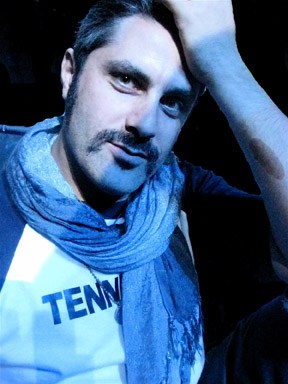
Robbie Kowal
Concert Promoter Robbie Kowal is the Founder/Creative Director of San Francisco Bay area concert promotion company HUSHconcerts. They have hosted shows by Flaming Lips, Flying Lotus, The Orb, Giorgio Moroder and Wu-Tang Clan — to name just a few. HUSH is well-known in the Bay area for organizing the SF Funk Festival, Sea of Dreams, and North Beach Jazz Fest.
In 2006, Kowal was the first DJ to ever play a silent disco in the US, at that year’s Bonnaroo festival. Kowal makes music as Motion Potion ; his latest project is Subterranean Homemade Alchemy, an album of Radiohead remixes, edits, and mashups, with all proceeds going to charity. His work as a Promoter has been featured in the LA Times , San Francisco Examiner , SF Weekly , LA Mag , and Billboard .
- 1 Multiple. "Concert Promoter Salary" . Comparably. published: . retrieved on: Dec 16, 2019